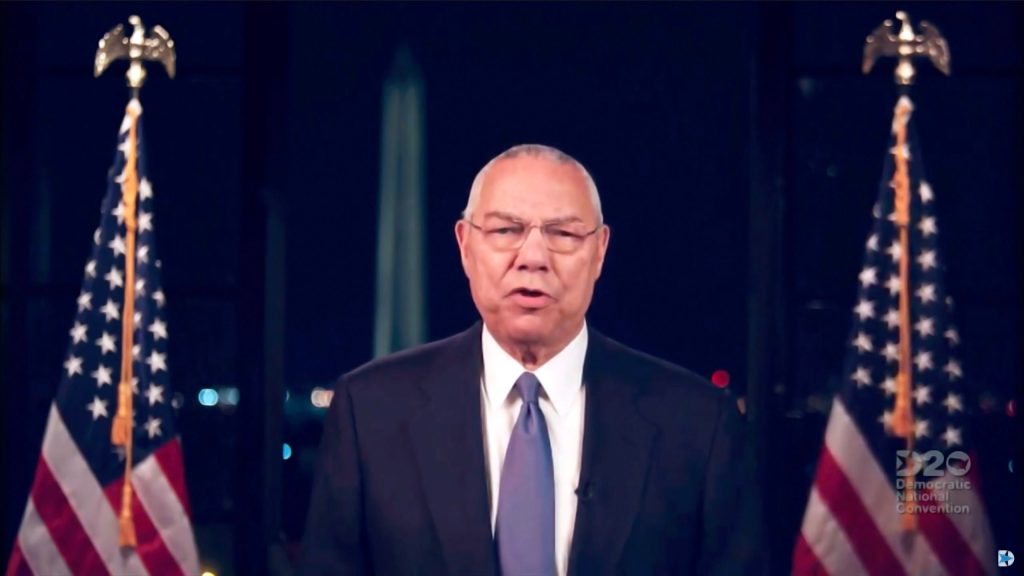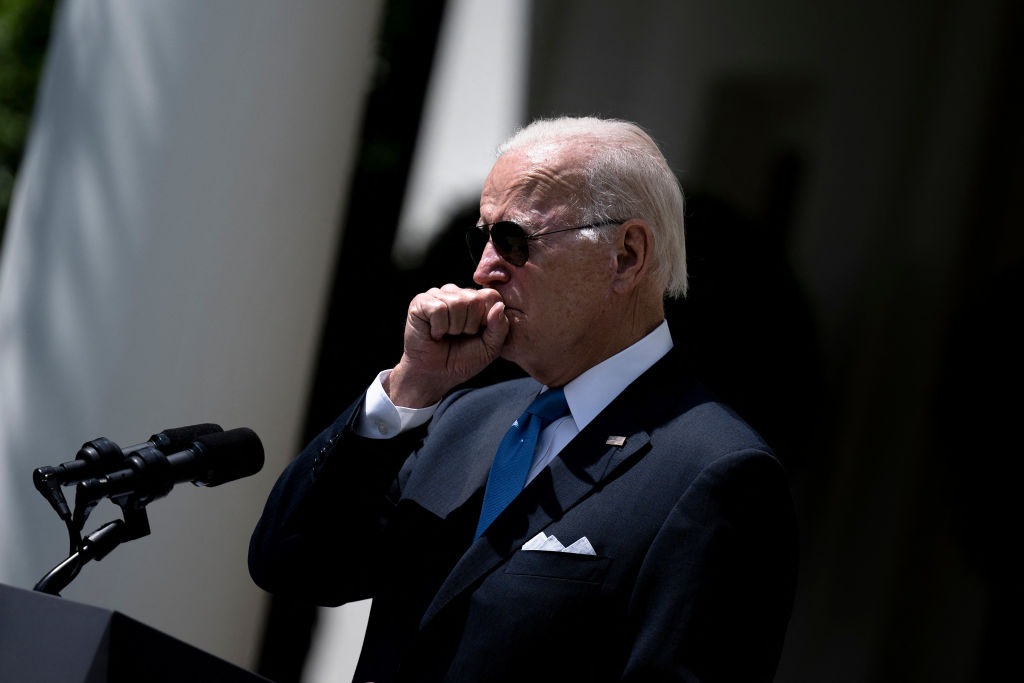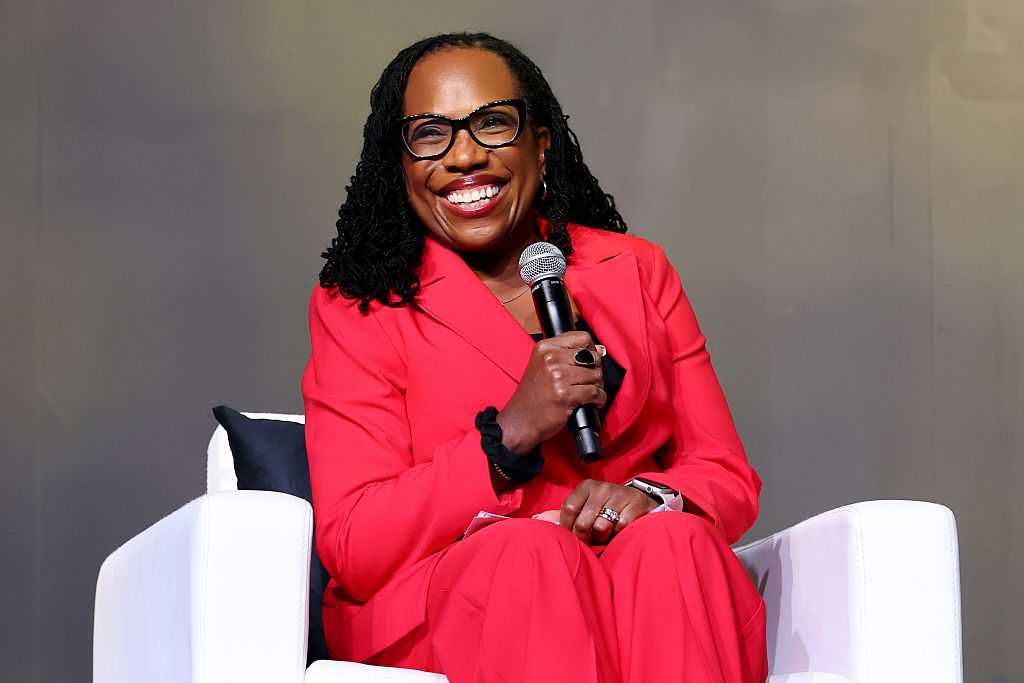The Democratic Zoomvention is nearly complete. Cutting away all the pageantry typical of a party convention has done a great deal to show how sad the whole affair is. Cockburn is very sad for having watched it.
Trotting out members of the opposing party to endorse the candidate is a long-running convention tradition, and with Donald Trump having alienated so many DC Republicans in his first term, the 2020 DNC is unsurprisingly no exception. Yet at the same time, Democrats seem to have pulled punches in their efforts to discredit Trump with his own party.
The star Tuesday night was Colin Powell, George W. Bush’s secretary of state. Whatever his merits as a speaker, trotting Powell out to discredit the Republican party is feeling a bit knackered by this point. Powell’s last Republican presidential vote happened closer to the fall of the Berlin Wall than the present. He fully endorsed Barack Obama twice and made a large public fuss of voting for Hillary Clinton as well. His vote in this election means he will have backed more Democrats than Republicans since declaring himself a member of the GOP in 1995.
In another world, the other big Republican appearance on Tuesday might have been Sen. John McCain. Joe Biden’s nomination for president shows that one need not be in the fullest sense alive to make an appearance at the DNC. Despite that flexibility, though, McCain was unable to make an appearance, so his wife Cindy offered a voiceover instead to tout her famously cantankerous husband’s long friendship with Biden. But John McCain feuded famously with Trump during the last election cycle and voted for fellow war hawk Lindsey Graham as a write-in.
The Republican line-up on Monday night wasn’t much better. Democrats would have done well to showcase party die-hards who were turned off by Trump’s actual performance as president. Instead, they trotted out his most die-hard enemies.
John Kasich signed an oath to support the 2016 Republican nominee no matter who it was, then repudiated the promise. His plot to take over the Republican party in the wake of Trump’s defeat, though, was abruptly derailed by Trump’s non-defeat.
Another of Monday’s Trump denouncers, former Hewlett-Packard CEO Meg Whitman, openly compared Trump to both Hitler and Mussolini during the 2016 cycle. Monday’s other Whitman, former New Jersey governor Christine Todd, made the Hitler comparison even earlier, calling Trump a fascist in a December 2015 Politico op-ed.
All of this is to say that the murderer’s row of Republicans denouncing Trump this week feels quite underwhelming. These people loudly hated Trump four years ago, so who cares if they still hate him now? There were arguably more damaging anti-Trump speeches at the 2016 Republican convention (remember Ted Cruz’s ‘vote your conscience’?).
Far better speeches may have been procured if Democrats had the courage to ask for them. By now, there is no shortage of unhappy ex-members of the Trump administration. Chief of staff John Kelly, defense secretary James Mattis, and national security adviser John Bolton have all effectively disavowed Trump since leaving the administration. Former secretary of state Rex Tillerson has suggested Trump doesn’t like to read. Maybe none of them could be convinced to make a DNC appearance, but Cockburn suspects they were not asked in the first place. Democratic hatred of Trump’s senior personnel is so white-hot that asking the base to applaud a cabinet-level defector may be too painful, no matter how strong a political blow it would be.
***
Get a digital subscription to The Spectator.
Try a month free, then just $3.99 a month
***
These soft attacks could even have the effect of inadvertently strengthening Trump. 2020’s Donald Trump is substantially more brittle than 2016’s vintage, tweeting almost obsessively about his approval within the Republican party:
96% Approval Rating in the Republican Party. Thank you! Also, leading in most swing states!
— Donald J. Trump (@realDonaldTrump) August 12, 2020
96% Approval Rating in the Republican Party. 50% in new Rasmussen Poll (higher than Obama at this point in time). Thank you!
— Donald J. Trump (@realDonaldTrump) August 3, 2020
President Trump Approval Rating in the Republican Party at 96%. Thank You!
— Donald J. Trump (@realDonaldTrump) July 10, 2020
Wow! 96% Approval Rating in the Republican Party (and I believe this was before the “GREAT” Jobs Numbers yesterday). Thank you!
— Donald J. Trump (@realDonaldTrump) June 6, 2020
Cockburn hopes you get the idea. In case you’re just waking up from a 70-year coma, the Republican party is not particularly associated with good governance or popular policies, even among its voters, which is why Donald Trump was able to trample the party as an ex-Democrat outsider four years ago. But since winning the presidency, Trump has fought to tie himself very closely to the party, mostly to his detriment. By trotting out the architects of the Iraq War and veterans of the Bush administration (Gallup approval rating in October 2008: 25 percent), Democrats may do what Trump himself has been loathe to do: reignite the idea that Trump is a populist outsider, overthrowing the corrupt leadership of both parties. They could revitalize him, in an election he seems at times determined to lose.

























